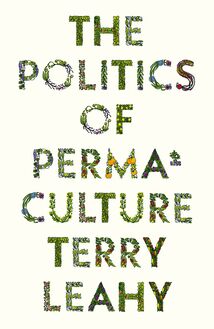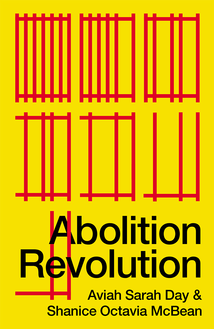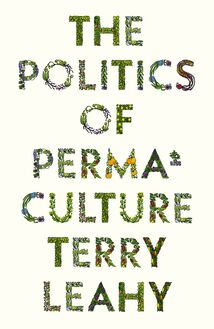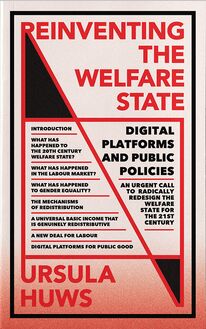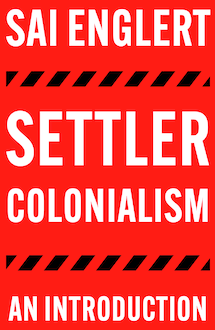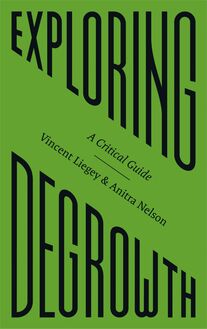-
 Univers
Univers
-
 Ebooks
Ebooks
-
 Livres audio
Livres audio
-
 Presse
Presse
-
 Podcasts
Podcasts
-
 BD
BD
-
 Documents
Documents
-
- Cours
- Révisions
- Ressources pédagogiques
- Sciences de l’éducation
- Manuels scolaires
- Langues
- Travaux de classe
- Annales de BEP
- Etudes supérieures
- Maternelle et primaire
- Fiches de lecture
- Orientation scolaire
- Méthodologie
- Corrigés de devoir
- Annales d’examens et concours
- Annales du bac
- Annales du brevet
- Rapports de stage
La lecture à portée de main
Vous pourrez modifier la taille du texte de cet ouvrage
Découvre YouScribe en t'inscrivant gratuitement
Je m'inscrisDécouvre YouScribe en t'inscrivant gratuitement
Je m'inscrisEn savoir plus
Vous pourrez modifier la taille du texte de cet ouvrage
En savoir plus

Description
'Inspiring. [...] Crammed with lively interviews and grounded examples' Ashish Kothari, founder of Kalpavriksh
Permaculture is an environmental movement that makes us reevaluate what it means to be sustainable. Through innovative agriculture and settlement design, the movement creates new communities that are harmonious with nature. It has grown from humble origins on a farm in 1970s Australia and flourished into a worldwide movement that confronts industrial capitalism.
The Politics of Permaculture is one of the first books to unpack the theory and practice of this social movement that looks to challenge the status quo. Drawing upon the rich seam of publications and online communities from the movement as well as extensive interviews with permaculture practitioners and organisations from around the world, Leahy explains the ways permaculture is understood and practiced in different contexts.
In the face of extreme environmental degradation and catastrophic climate change, we urgently need a new way of living.
Series Preface
Acknowledgements
Preface
1. What Is Permaculture? Three Perspectives
2. Permaculture as a Social Movement
3. Strategies and Visions
4. Permaculture Practice: Prefiguring System Change
5. Gender and Colonialism
Conclusion: Permaculture Politics
Notes
Index
Sujets
Biological Diversity
Life Sciences
Environmental Policy
Public Policy
Political Ideologies
Environmental Economics
Environmental Protection
Environmental Conservation
Personal Growth
POLITICAL SCIENCE
Calentamiento global
Sociedad posindustrial
Sociology
Degrowth
Biology
Global warming
Post-capitalism
Self-sufficiency
Post-industrial society
Social movement
Agroecology
Sustainable agriculture
Green politics
General officer
Ideology
Climate change
Biodiversity
Environment
Politics
Environmentalist
Deforestation
Ecology
Permaculture
General
454 Life Sciences
Nature
Informations
| Publié par | Pluto Press |
| Date de parution | 20 juillet 2021 |
| Nombre de lectures | 0 |
| EAN13 | 9780745342788 |
| Langue | English |
Informations légales : prix de location à la page 0,0005€. Cette information est donnée uniquement à titre indicatif conformément à la législation en vigueur.
Extrait
The Politics of Permaculture
Critical theorists often restrict themselves to criticising the prevailing conditions of the system. They rarely turn a critical gaze on initiatives based in solidarity and aiming at transformation. Terry Leahy s book is not only a proof that this is fruitful but a proof that this pathway may lead us to widen the horizon of what transformation can mean.
-Friederike Habermann, author of the paper Economy, Ecommony, CareCommony
A valuable discussion, including connections with class, feminism, colonialism and differing ideas about social change.
-Ted Trainer, author of Transition to a Just and Sustainable World
Permaculture has been described as a revolution disguised as organic gardening . That may be so, but vision without political strategy can be empty. Terry Leahy explores the political significance and latent potential of permaculture, which is terrain that has been sorely neglected.
-Samuel Alexander, Research Fellow, Melbourne Sustainable Society Institute and author of Wild Democracy: Degrowth, Permaculture, and the Simpler Way
A lucid sociological analysis, arguing that the permaculture movement is multi-variegated and paradoxical. Highly recommended for readers who are looking for a concise overview of permaculture not only as an agricultural practice but as a pre-figurative experiment.
-Hans A. Baer, University of Melbourne Sustainable Society Institute and author of Democratic Eco-Socialism as a Real Utopia: Transitioning to an Alternative World System
This is permaculture revealed in all its splendour [...] an invaluable approach for exploring future strategic pathways.
-Noel Blencowe, long-term Co-Team Leader, CERES Environmental Park, Melbourne
Important reflections on theories and practices to address the climate crisis, proving the important role of that progressive social movements have in the development of alternative knowledge.
-Donatella Della Porta, Professor of Political Science and Dean of the Faculty of Political and Social Sciences at the Scuola Normale Superiore, Florence
FireWorks
Series editors:
Gargi Bhattacharyya, Professor of Sociology, University of East London
Anitra Nelson, Associate Professor, Honorary Principal Fellow, Melbourne Sustainable Society Institute, University of Melbourne
Wilf Sullivan, Race Equality Office, Trade Union Congress
Also available
Empire s Endgame: Racism and the British State Gargi Bhattacharyya, Adam Elliott-Cooper, Sita Balani, Kerem Nisancioglu, Kojo Koram, Dalia Gebrial, Nadine El-Enany and Luke de Noronha
Reinventing the Welfare State: Digital Platforms and Public Policies Ursula Huws
Exploring Degrowth: A Critical Guide Vincent Liegey and Anitra Nelson
Pandemic Solidarity: Mutual Aid during the Covid-19 Crisis Edited by Marina Sitrin and Colectiva Sembrar
The Politics of Permaculture
Terry Leahy
First published 2021 by Pluto Press 345 Archway Road, London N6 5AA
www.plutobooks.com
Copyright Terry Leahy 2021
The right of Terry Leahy to be identified as the author of this work has been asserted in accordance with the Copyright, Designs and Patents Act 1988.
British Library Cataloguing in Publication Data A catalogue record for this book is available from the British Library
ISBN 978 0 7453 4275 7 Hardback ISBN 978 0 7453 4274 0 Paperback ISBN 978 0 7453 4280 1 PDF ISBN 978 0 7453 4278 8 EPUB ISBN 978 0 7453 4279 5 Kindle
This book is printed on paper suitable for recycling and made from fully managed and sustained forest sources. Logging, pulping and manufacturing processes are expected to conform to the environmental standards of the country of origin.
Typeset by Stanford DTP Services, Northampton, England
Simultaneously printed in the United Kingdom and United States of America
Contents
Series Preface
Acknowledgements
Preface
1 What Is Permaculture? Three Perspectives
2 Permaculture as a Social Movement
3 Strategies and Visions
4 Permaculture Practice: Prefiguring System Change
5 Gender and Colonialism
Conclusion: Permaculture Politics
Notes
Index
Series Preface
Addressing urgent questions about how to make a just and sustainable world, the FireWorks series throws a new light on contemporary movements, crises and challenges. Each book is written to extend the popular imagination and unmake dominant framings of key issues.
Launched in 2020, the series offers guides to matters of social equity, justice and environmental sustainability. FireWorks books provide short, accessible and authoritative commentaries that illuminate underground political currents or marginalised voices, and highlight political thought and writing that exists substantially in languages other than English. Their authors seek to ignite key debates for twenty-first-century politics, economics and society.
FireWorks books do not assume specialist knowledge, but offer up-to-date and well-researched overviews for a wide range of politically-aware readers. They provide an opportunity to go deeper into a subject than is possible in current news and online media, but are still short enough to be read in a few hours.
In these fast-changing times, these books provide snappy and thought-provoking interventions on complex political issues. As times get dark, FireWorks offer a flash of light to reveal the broader social landscape and economic structures that form our political moment.
Acknowledgements
I would like to begin by acknowledging the Traditional Owners of the land on which this book was written - the Wurundjeri Woi Wurrung people of the Kulin nation. Their land was stolen and has never been ceded. I pay my respects to their elders, past, present and future.
I am very grateful to Anitra Nelson for suggesting I write this book for the Pluto FireWorks series. I never expected to write a book on permaculture. Very early on in my involvement with permaculture I had decided not to treat the movement as a subject for my sociological research. Yet, when it became clear that Pluto was intending a series on social movements challenging capitalism it seemed obvious that permaculture should be included. So, in the middle of 2019 I began to collect the interviews that are the backbone for this study. I started with my Australian friends in the permaculture movement and broadened that out to international contacts, including some people that I had never met in person. We worked with online interviews that provide an experience close to a face-to-face meeting. I am extremely grateful to these interviewees for their generous contribution and sophisticated understanding. Among my friends in Melbourne is Doni Marmer, an Indonesian postgraduate student in Australia. He introduced me to members of IDEP, the Indonesian permaculture organisation, and we conducted interviews online. One was in English and the other was a three-way interview, with Doni translating for me. This book also rests on the work I have done for a number of years with the Chikukwa community of Zimbabwe. As always, I owe them an immense debt for introducing me to their amazing project.
In writing this book I have been assisted editorially by Anitra Nelson and by my friend Donna Russo, who have made excellent suggestions to improve the writing - making sure that everything is being put as clearly as possible. I would also like to express my thanks to my partner Pam Nilan, who has supported my research and writing over many years.
Preface
This book is about the politics of permaculture. That is not in the narrow sense of politics - meaning parties and governments - but in the broad sense pioneered by the second wave feminist movement. Politics is about contests and collaborations that guide the direction of society. That can be a depressing topic but does not have to be. Permaculture is an optimistic movement and gives us cause for optimism.
What is permaculture? If you have just heard of the movement and do not know much about it, you might well think that permaculture is about food growing and gardens. But if you have asked a permaculture afficionado you will have been told that that conception is a mistake . In fact, there are a variety of different ways of defining permaculture. As a sustainable system of agriculture based on tree crops, as a system of sustainable agriculture and settlement design, as a design philosophy for a sustainable society. There is much to be gained from exploring these different conceptions in detail and the next chapter will do that. Those are questions about the foundation of permaculture in ideas. But as this book will explain, permaculture is also a social movement, a body of people, their actions and the ways that they think about the world.
I come to this book after a long, if patchy connection to the permaculture movement. I first encountered permaculture in the late 1970s when Permaculture One (1978) was published. I was into my fifth year of lecturing in sociology at the University of New South Wales (NSW) in Sydney (Australia). I had been a participant in the anarcha-feminist counterculture in Sydney since 1972. Our part of the counterculture was in the middle, between the hippies on one side and the lesbian separatists on the other. We squatted some old houses in the inner suburb of Glebe to start a childcare coop. Some of the people in the coop organised to buy a rural property near Taree in NSW, to be run using permaculture ideas. I am pretty sure it was these events that started me reading the permaculture material. I loved the idea of growing food plants in a forest, a diverse array of useful plants interacting together to suppress weeds and pests.
In the late 1980s I made a serious attempt to go and live on the property with my partner and our two very young children. This turned out to be a lot harder than we had expected. We left the forest in a rainy and leech infested summer, packed up the kids and headed up to Armidale. After a few years, I ended up in another academic ap
-
 Univers
Univers
-
 Ebooks
Ebooks
-
 Livres audio
Livres audio
-
 Presse
Presse
-
 Podcasts
Podcasts
-
 BD
BD
-
 Documents
Documents
-
Jeunesse
-
Littérature
-
Ressources professionnelles
-
Santé et bien-être
-
Savoirs
-
Education
-
Loisirs et hobbies
-
Art, musique et cinéma
-
Actualité et débat de société
-
Jeunesse
-
Littérature
-
Ressources professionnelles
-
Santé et bien-être
-
Savoirs
-
Education
-
Loisirs et hobbies
-
Art, musique et cinéma
-
Actualité et débat de société
-
Actualités
-
Lifestyle
-
Presse jeunesse
-
Presse professionnelle
-
Pratique
-
Presse sportive
-
Presse internationale
-
Culture & Médias
-
Action et Aventures
-
Science-fiction et Fantasy
-
Société
-
Jeunesse
-
Littérature
-
Ressources professionnelles
-
Santé et bien-être
-
Savoirs
-
Education
-
Loisirs et hobbies
-
Art, musique et cinéma
-
Actualité et débat de société
- Cours
- Révisions
- Ressources pédagogiques
- Sciences de l’éducation
- Manuels scolaires
- Langues
- Travaux de classe
- Annales de BEP
- Etudes supérieures
- Maternelle et primaire
- Fiches de lecture
- Orientation scolaire
- Méthodologie
- Corrigés de devoir
- Annales d’examens et concours
- Annales du bac
- Annales du brevet
- Rapports de stage

